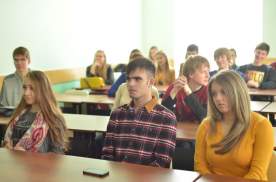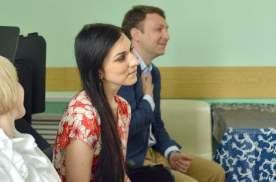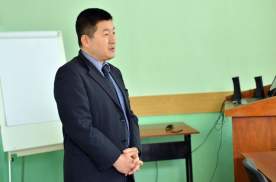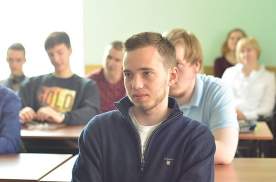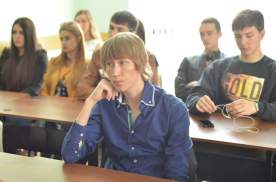The USA consul talked to VSUES students about intercultural communication

On the 7th of May, students of the first two courses of joint international program of VSUES Higher School of Management had a meeting with a consul of the USA on cultural and educational issues in Vladivostok, Mr. Day Kim.
Mr. Kim is considered to be the most “musical” consul of the USA. He is not just a guest or an invited speaker, but after conducting many lectures and meetings with the students of VSUES he became a “kind friend” of our university.
Mr. Day Kim delivered a lecture on intercultural differences using jokes and practical examples in his usual interesting manner of speaking which was easy to percept.
The foreign consul has a very rich experience in intercultural communication. He was born in Korea. In his childhood he moved from Seoul to the USA. He worked for a large Japanese company. During his consulate experience he managed to work in 16 countries. That is why Day Kim knows better than anybody else that different national cultures consist of various important aspects.
Day Kim demonstrated two scripts for starting his speech to the students - introduction as an American speaker with a joke or a story about himself and a typical start as a Japanese speaker with an excuse for wasting the audience’ time.
According to the consul, there are three aspects of international relations which are characterized by the most evident cultural differences: time, space and context. He confirmed every aspect with an example.
Also, the consul talked to the students about life experience, demonstrated specific features of culture in different countries on the part of individualism and collectivism.
In their turn the students shared interesting stories from their life and their own outlook on cultural differences between Americans and Russians.
In the conclusion of the lecture Mr. Day Kim assured the students of VSUES that planned to continue education in the USA that the existing strain in relations between Russia and the USA did not cause any changes in visa relations.







